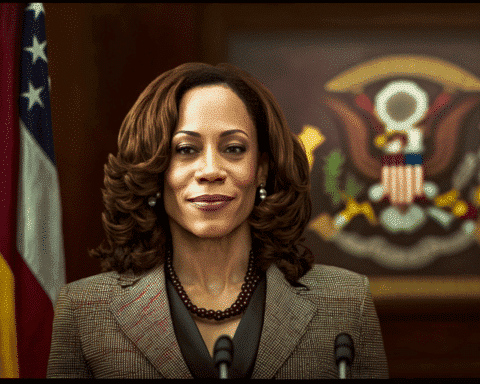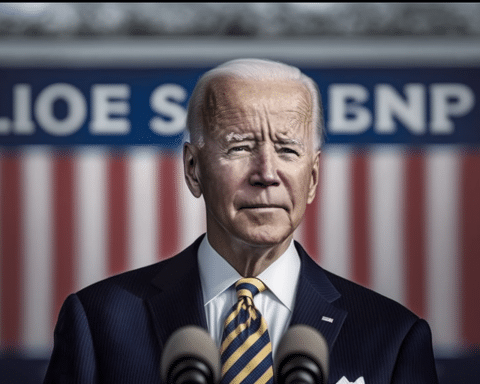In a dramatic turn of events, Vice President Kamala Harris is swiftly moving to secure the Democratic nomination for the 2024 presidential race following President Joe Biden’s unexpected decision to step aside. Biden’s departure, prompted by concerns within the Democratic Party about his ability to defeat Republican candidate Donald Trump, has significantly reshaped the political landscape for the upcoming election.
Biden’s announcement on Sunday was a seismic shift, upending the strategic plans of both major political parties. The Democratic Party, aiming to put an end to weeks of internal drama over Biden’s candidacy, quickly rallied around Harris. Prominent Democratic elected officials, party leaders, and political organizations endorsed her within hours of Biden’s withdrawal.
With Biden’s exit, his delegates are now free to vote for any candidate. Harris, backed by Biden, is currently the only declared candidate and is working diligently to secure endorsements from a majority of delegates. Among the notable endorsements she received on Monday are those from Maryland Governor Wes Moore, Michigan Governor Gretchen Whitmer, Illinois Governor J.B. Pritzker, and Kentucky Governor Andy Beshear. These endorsements leave Harris with a dwindling list of potential rivals.
Securing the nomination is just the first of many challenges Harris faces following Biden’s decision, which she learned about during a Sunday morning call with the president. Should she succeed in locking up the nomination, she will need to choose a running mate and redirect Biden’s massive political operation to support her campaign. This task is daunting, with just over 100 days remaining until Election Day.
On Sunday afternoon, Biden’s campaign officially rebranded to “Harris for President.” This move reflects Harris inheriting Biden’s political machinery, which includes over 1,000 staffers and a substantial war chest of nearly $96 million as of the end of June. The campaign’s financial strength grew further by Monday morning, with Harris raising $49.6 million in donations within the first 15 hours following Biden’s endorsement.
Harris spent much of Sunday surrounded by family and staff, making over 100 calls to Democratic officials to secure their support. This effort aims to move the party past the contentious period marked by Biden’s disastrous June 27 debate with Trump. Harris, while expressing gratitude for Biden’s endorsement, emphasized her intent to earn the nomination on her own merits.
The Democratic Party is coalescing behind Harris, as evidenced by endorsements from the leadership of several influential caucuses and political organizations. These include the AAPI Victory Fund, The Collective PAC, the Latino Victory Fund, and the chairs of the Congressional Progressive Caucus, the Congressional Hispanic Caucus, and the entire Congressional Black Caucus. If elected, Harris would make history as the first woman and the first person of South Asian descent to become president.
Potential running mates for Harris, such as Pennsylvania Governor Josh Shapiro, North Carolina Governor Roy Cooper, and Arizona Senator Mark Kelly, have also quickly endorsed her candidacy. Harris spoke with both Shapiro and Cooper on Sunday, securing their support.
Former President Barack Obama has not yet endorsed Harris, opting to support the eventual party nominee to avoid the appearance of a coronation. Meanwhile, West Virginia Senator Joe Manchin, who had considered re-registering as a Democrat to challenge Harris, confirmed he would not be a candidate.
Harris made her first public appearance as a presidential candidate on Monday morning at the White House, where she spoke at an event honoring National Collegiate Athletic Association championship teams. This appearance signifies how she will balance her vice-presidential responsibilities with her new role as a candidate. Later, she traveled to Wilmington to meet with her newly acquired campaign staff.
In her statements, Harris praised Biden’s decision to step aside as a selfless and patriotic act. She committed to uniting the Democratic Party to defeat Trump and his Project 2025 agenda. Biden is expected to discuss his decision later this week in a national address, reiterating his belief that stepping down is in the best interest of the party and the country.
The Democratic National Convention, scheduled for August 19-22 in Chicago, will adjust its nomination process to reflect Biden’s exit. Harris has communicated her preference for a nomination process that adheres to regular order, rather than a virtual roll call.
The Democratic National Committee has pledged to undertake a transparent and orderly process to select a candidate capable of defeating Trump in November. Harris’s efforts to secure the nomination mark the beginning of a challenging but potentially historic campaign.




